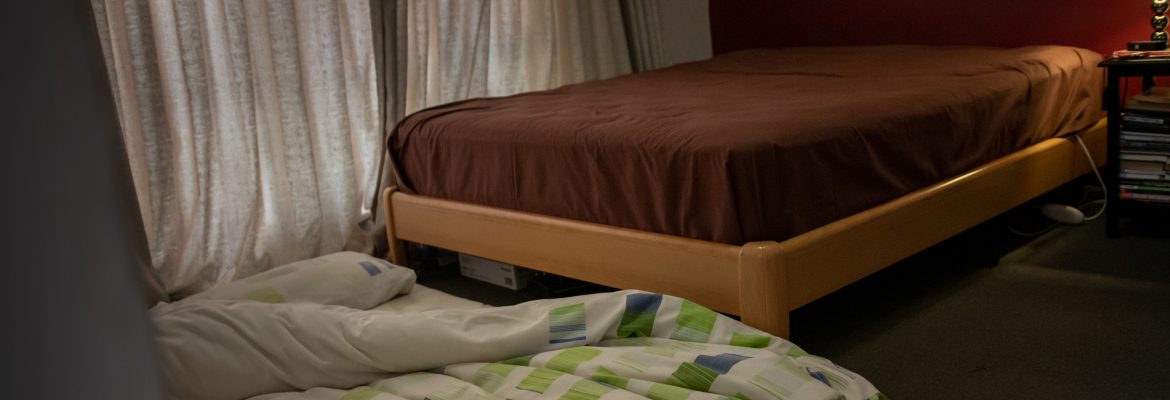
“I slept on the floor for 7 days. Here’s what I learnt.”
HOPE worldwide SA launched the #GoWithoutChallenge on the 1st July. They urged people to give up some of their comforts like Netflix, breakfast, coffee or in my case, my bed for a period of time. This was in the hopes of shedding light on the reality of millions of children in South Africa who are poverty-stricken and go without basic needs every day. The initiative doesn’t only intend to educate but to also urge those who take on the challenge to partner with the organization and make a donation to alleviate poverty in South Africa as much as they can. I thought it would be enlightening to take on the challenge but did not anticipate the lessons I would learn from it. Here are a few…
We can’t truly understand
The first day wasn’t as bad as I expected it to be. I slept really well in fact. It gave me the impression that it’s not such a big deal. My problem was, I thought that by experiencing it for a moment, I understood what it felt like to have to sleep this way every night. This thought can easily make light of people’s daily experiences. In the same way that there’s a difference between going on holiday somewhere and living there, there’s a huge difference in understanding people’s situations at face value and understanding their complete human experience. The first thing I’ve learnt is that it’s better to withhold early judgement. It’s better to understand that I can’t ever truly understand a person’s circumstances.
The mind can desensitise anything
Somewhere in the middle of my challenge, I had adapted to this being my new normal. Though I wasn’t thinking much of the challenge anymore, my body gradually started getting affected by it, my deep sleep became long naps. However, I didn’t think much of it. I didn’t think about it at all. I didn’t realize that I wasn’t getting quality rest anymore. The mind is powerful. People are able to normalize almost anything they become accustomed to. It’s a tragedy when discomfort is the thing the mind has to normalize.
Compassion grows with understanding
As the days went by, my stored up resilience faded. My body started to ache, keeping me tossing and turning throughout the night in search of an all too elusive position of comfort. As sleep became harder, so did waking up. My quality of life dropped dramatically. As I started longing for the challenge to come to an end, it dawned on me that millions of people in the country do not have the luxury of that choice. At HOPE worldwide, we define compassion as “suffering with”. Rather than looking down on people in vulnerable situations and feeling sorry for them, we seek to understand on a deeper level what they go through so that tenderness can fill our hearts as our comfort to them fills theirs. I’m convinced that the more we learn about the depths of people’s lives, the more affection we can cultivate and the deeper we’re able to feel in our own lives.
True love is displayed in sacrifice
What inspired this challenge for me was a grandmother I met who chose to sleep on the floor, not because she didn’t have a bed, but because she had offered it to the children she was taking care of. Culturally, an elder is to be honoured with the greatest position. Instead, she chose to honour them, to ensure that her family is well-rested, even if she wouldn’t be. This challenges how much I value comfort and the lengths I’m personally willing to go. Despite her circumstances, she has given so much more than I ever have. It’s easy to be loving when there isn’t much of an expense on my part. I saw in her however, that true love is displayed in sacrifice.
We are no better than those who are disadvantaged. In many ways, they are more resilient, more sacrificial and experience greater love. It would do us all a whole lot of good to take some time to learn from them.
